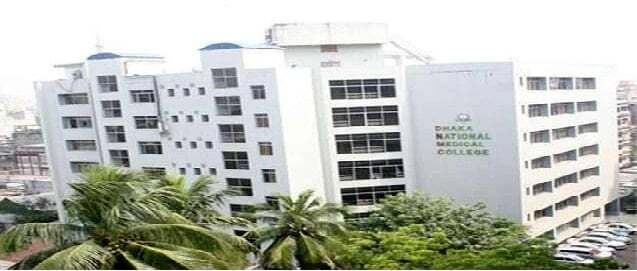Study MBBS in Belgium 2025 for Indian Students on Medical Education,Top Colleges to Study Medicine in Belgium
Belgium is home to several prestigious universities, offering high-quality medical programs that attract international students, including those interested in pursuing medical degrees. One of the unique aspects of studying medicine in Belgium is the multicultural environment, as the country is situated at the crossroads of Europe, offering a blend of Dutch, French, and German influences. The “Belgian medical” system is renowned for its rigorous training, practical skills development, and focus on medical research, which is supported by “public research universities” across the country.
About Belguim
Some of the key points about studying MBBS in Belgium include:
- Belgian universities offer programs that provide a “high standard” of education.
- Medical degrees, or the equivalent of an MBBS, are typically “taught in English” in some universities, though many programs are “offered in Dutch.”
- Admission requirements for medical courses may vary “depending on the university.”
- Students “must” take a “proficiency test” in Dutch or French, depending on the language of instruction at the specific institution.
- “Belgium offers” an attractive option for international students seeking a “career in medicine” due to its “high standard of living” and advanced “healthcare services.”
| Category | Details |
|---|---|
| Capital | Brussels |
| Official Language | Dutch, French, and German |
| Currency | Euro (EUR) |
| Number of Universities (Medical) | 5 universities offering medical programs |
| Average Tuition Fees for MBBS | 5 – 15 lakh INR per year |
| Cost of Living in Belgium | Approximately 70,000 – 1 lakh INR per month |
| Minimum and Maximum Temperature | -1°C (winter) to 25°C (summer) |
| Exchange Rates to INR | 1 EUR = 88 INR (approx.) |
| Climate | Temperate maritime climate, with cool winters and mild summers |
Belgium, a country in Western Europe, is known for its rich history, cultural diversity, and top-tier education system. It offers an ideal environment for international students who “want to study” medicine, with its “multicultural” setting providing a welcoming atmosphere for global learners.
Cultural Insights and Geographical Overview of Belgium
- Multicultural environment: Belgium has three official languages—Dutch, French, and German—which reflect its diverse population. International students will experience a rich blend of cultural influences during their stay.
- Strategic location: Situated between France, Germany, and the Netherlands, Belgium is a hub for international travel and academic exchanges.
- Historical landmarks: From the medieval architecture of cities like Bruges to the political institutions in Brussels, students will enjoy a culturally immersive experience outside of their studies.
The Educational System to Study MBBS in Belgium 2025
Belgium has a well-structured higher education system, particularly known for its “medical practice” programs. Some of the notable “Belgian universities” offering medical degrees include:
- KU Leuven: One of the top universities in Belgium, known for its “faculty of medicine at KU” Leuven. It offers programs designed to develop both “practical skills” and theoretical knowledge.
- Université Libre de Bruxelles: This “Belgian medical” university is renowned for its contributions to “medical research” and offers diverse programs for international students.
Key points about the medical education system in Belgium:
- Medical education is typically divided into basic medical training, followed by specializations such as becoming a “general practitioner.”
- International students “pursuing” an MBBS-equivalent degree in Belgium must “make sure” they meet the “admission requirements” and language proficiency standards.
- “Belgium offers” a wide range of educational opportunities, but the “cost of living in Belgium” may vary significantly based on location.
- “Medical graduates” from Belgium are well-prepared for careers across “European countries,” thanks to the rigorous training they receive.
Want To Study in Belgium?

Why Study MBBS in Belgium 2025-26?
Belgium is becoming an increasingly popular destination for international students seeking to study medicine. With a strong reputation for academic excellence, the country offers some of the best MBBS programs in Belgium, attracting students from around the world. “Public research universities” and “private institutions” across the country provide a wide range of “undergraduate medical” and graduate programs, giving students the opportunity to become “practitioners in Belgium” and other parts of Europe.
Top Reasons to Study Medicine in Belgium
- World-class education: Belgian universities are consistently highly ranked among European institutions, making them a top choice for students interested in pursuing “bachelor’s degrees” and diplomas in the medical field.
- Affordable tuition: Although the costs of studying medicine in “Belgium varies,” it is often more affordable compared to other Western European countries.
- Global recognition: Degrees from Belgian universities are widely recognized, offering graduates the flexibility to practice medicine in many countries.
- Multilingual environment: Students can study in English, French, or Dutch, depending on the university and program, offering a truly multicultural experience.
High-Quality Medical Colleges in Belgium
Belgium hosts several prestigious universities that offer high-standard medical education. A few notable institutions include:
- KU Leuven: This “public research university located” in Leuven is known for its advanced “undergraduate medical” training and research facilities. It consistently ranks among the top universities in Europe for medicine.
- Université Libre de Bruxelles: With a strong focus on “medical research” and clinical practice, this university is ideal for international students.
- Ghent University: A “research university located in Ghent,” it offers a robust medical program that integrates theory and practical skills.
Belgium’s medical colleges ensure that students gain comprehensive training, preparing them to become competent medical practitioners across the globe.
International Recognition of MBBS in Belgium
Belgium offers internationally recognized MBBS programs that meet the rigorous standards of European medical education. Upon completion, students receive a medical diploma that is acknowledged by most medical councils worldwide. This international accreditation opens doors for graduates to work not only as practitioners in Belgium but also in other countries across Europe and beyond.
- Many universities require students to pass a language proficiency test in either Dutch or French for medical programs that are not “taught in English.”
- The Belgian medical curriculum includes extensive clinical practice, ensuring that graduates are well-prepared for their medical careers.
Student Support Services in Belgium
International students are provided with extensive support services to ease their transition into life in Belgium. From guidance on “MBBS admission” to advice on navigating the visa process at the “Belgian embassy or consulate,” universities offer various resources:
- Counseling services for mental health and well-being.
- Language support programs to help students meet proficiency standards.
- International student offices that assist with housing, healthcare, and academic advice.
Global Career Opportunities After MBBS in Belgium
Graduating from a Belgian university opens up global career prospects for medical students. With a strong emphasis on practical skills and international collaboration, medical graduates from Belgium are highly sought after in various countries.
- Students interested in “studying medicine abroad” will find Belgium an attractive option, as its medical degrees are recognized globally, allowing for smooth transition into medical practice in European and non-European countries.
- Many graduates pursue careers as “general practitioners” in Belgium or other European nations. Others continue their medical education, specializing in fields like surgery, cardiology, or pediatrics.
Want To Study in Belgium?
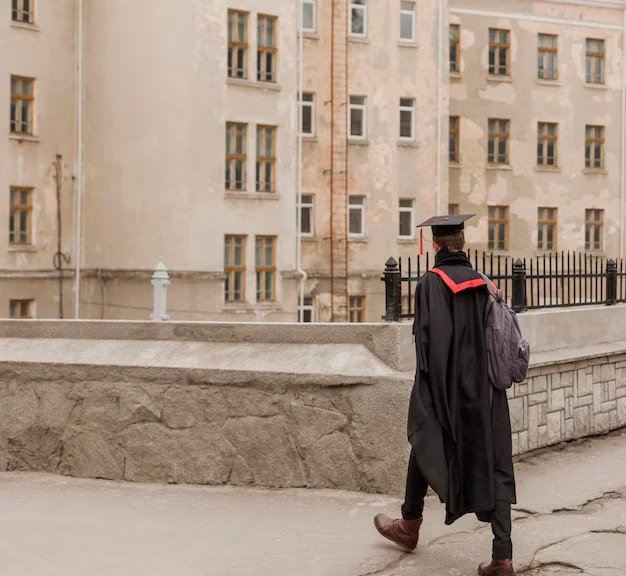
Study MBBS in Belgium for Indian Students 2025-26
Belgium offers a great opportunity for Indian students who aspire to pursue medical education abroad. The country’s top-ranked universities provide internationally recognized degrees, excellent research facilities, and a multicultural environment, making Belgium an attractive destination for studying medicine. Indian students considering this option will find several benefits, though they need to ensure they meet specific “admission requirements.
Benefits for Indian Students to Study in Belgium
- International Recognition: Medical degrees from Belgian universities are recognized globally, allowing Indian students to pursue a medical career both in Europe and other countries.
- High-Quality Education: Belgium offers a strong foundation in both theoretical and practical aspects of medicine, ensuring students gain comprehensive knowledge and hands-on experience.
- Multilingual Environment: Indian students can choose to study in English, French, or Dutch, depending on the university, offering flexibility in language options.
- Multicultural Exposure: Studying in Belgium allows Indian students to interact with peers from diverse backgrounds, enhancing their cultural awareness and adaptability.
Admission Process for Indian Students
The admission process for Indian students is straightforward but may vary “depending on the university” they apply to. It is important to “make sure you meet” all the entry criteria before applying:
- Educational Background: Indian students must have completed their higher secondary education (12th grade) with a strong foundation in science subjects such as Physics, Chemistry, and Biology.
- Proficiency Test: For programs taught in French or Dutch, students may need to pass a language proficiency test. Some medical courses are “taught in English,” which may require proficiency in English (IELTS or TOEFL scores).
- Entrance Exam: Certain Belgian universities require Indian students to take an entrance exam. Requirements may vary, and it is essential to verify the specific test with the university.
- Visa Requirements: Students must apply for a student visa, which can be obtained after securing admission. This process involves submitting the required documents to the “Belgian embassy or consulate.
Cost of Studying MBBS in Belgium for Indian Students
The costs of studying medicine in Belgium can be relatively affordable compared to other Western European countries, but fees may vary “depending on the university”:
| University | Annual Tuition Fees (Approx.) | Language of Instruction |
|---|---|---|
| KU Leuven | €6,000 – €9,000 | Dutch/English |
| Université Libre de Bruxelles | €4,500 – €8,000 | French |
| Ghent University | €7,000 – €9,500 | Dutch |
- The overall cost of living for Indian students in Belgium is estimated to be around €10,000-12,000 per year, including accommodation, food, and other personal expenses.
- “Make sure you meet” your financial needs by planning for tuition fees, living expenses, and other costs such as travel and medical insurance.
Scholarship Options for Indian Students
Belgium offers various scholarship programs for international students, including those from India. While scholarships can help cover part of the tuition fees or living expenses, it is crucial to explore all available options:
- VLIR-UOS Scholarships: Aimed at students from developing countries, including India, this scholarship can help reduce the financial burden of studying in Belgium.
- Government Scholarships: The Belgian government offers scholarships for international students pursuing higher education in the country.
- University-Specific Scholarships: Some Belgian universities offer scholarships or financial aid packages based on merit or need. Indian students should research each university’s scholarship programs.
Cultural Adaptation for Indian Students in Belgium
Belgium’s multicultural environment helps Indian students adapt more easily to life in a foreign country. However, it is important for students to be prepared for cultural differences and the challenges of studying in a new environment:
- Language and Communication: While many programs are “taught in English,” students may encounter French or Dutch in daily life, so learning basic phrases in either language can be helpful.
- Cultural Integration: Indian students will find that Belgium has a welcoming and inclusive society. Universities often provide support services, such as orientation programs and cultural adaptation workshops, to help international students settle in.
- Student Support Services: Universities offer extensive services for international students, including counseling, housing support, and academic assistance. This helps Indian students adjust to both academic and personal life in Belgium.
Want To Study in Belgium?

Admission Process for Studying MBBS in Belgium 2025-26
Belgium offers a unique and well-structured admission process for students wishing to pursue MBBS degrees. International students, including Indian students, need to be aware of the various steps involved to ensure a smooth application process. From meeting eligibility criteria to submitting the required documents and understanding visa requirements, this guide will help you through every stage.
Eligibility Criteria and Required Documents for Studying MBBS Admission in Belgium 2025-26
The eligibility criteria for studying medicine in Belgium are typically straightforward, but they may vary depending on the university. Here’s a general overview of what you need to qualify for MBBS admission in Belgium:
- Educational Background:
- Students must have completed higher secondary education or the equivalent (Class 12th for Indian students), with a strong focus on science subjects—Physics, Chemistry, and Biology.
- Many universities require students to have a “bachelor’s degree” in a relevant field before applying to MBBS programs in Belgium.
- Language Proficiency:
- Since programs are offered in Dutch, French, and English, students may need to demonstrate proficiency in one of these languages.
- For courses taught in English, students might be required to submit TOEFL or IELTS scores.
- NEET Qualification:
Indian students must qualify for the National Eligibility cum Entrance Test (NEET) to be eligible for MBBS admission in Egypt. For the 2025 academic year, the NEET qualifying marks are:- 50th percentile (720-162) for general category students
- 40th percentile (161-127) for SC/ST/OBC categories
- Entrance Exam:
- Some universities may require students to pass an entrance examination or a medical aptitude test. The requirements may vary based on the university.
- Required Documents:
- Completed application form.
- Certified copies of academic qualifications (high school diploma or bachelor’s degree).
- Proof of language proficiency (IELTS/TOEFL or equivalent for English, and relevant tests for Dutch/French).
- Passport copy.
- Passport-size photographs.
- Motivation letter and recommendation letters.
- Medical certificate verifying the student’s health condition.
Make sure you meet these criteria, as the requirements may differ from university to university.
Application Process and Deadlines to Study MBBS in Belgium 2025
The application process for MBBS programs in Belgium generally follows these steps:
- Research and Select University: Choose from Belgian universities that offer MBBS or equivalent medical programs. Top universities include KU Leuven, Ghent University, and Université Libre de Bruxelles.
- Online Application:
- Most Belgian universities allow students to apply online through their portals.
- Fill out the application form accurately and upload the required documents.
- Entrance Exam (if required):
- If the university has an entrance exam requirement, prepare and register for the test in advance.
- Application Deadlines:
- Application deadlines may vary, but generally fall between February to May for the fall intake, which starts in September 2025.
- For Indian students, it is important to check individual university websites for precise deadlines as they can differ based on the program and intake.
- Application Fees:
- Universities in Belgium often require an application fee. This typically ranges between €50 to €100 but can vary.
- Admission Confirmation:
- If your application is successful, you will receive an admission offer, typically within a few months of the application deadline.
| University | Application Deadline | Application Fees |
|---|---|---|
| KU Leuven | May 1, 2025 | €75 |
| Université Libre de Bruxelles | March 15, 2025 | €50 |
| Ghent University | April 1, 2025 | €100 |
Visa Requirements and Process for Studying MBBS in Belgium
To study in Belgium, international students, including Indian nationals, must apply for a long-term student visa (Type D). The process involves several steps, and it’s essential to submit your application well before the start of your course. Here’s a breakdown of the visa process:
- Eligibility:
- Students must have an official letter of admission from a Belgian university.
- Students should prove they have sufficient funds to cover tuition fees and living costs during their stay in Belgium.
- Required Documents:
- Admission letter from the university.
- Proof of sufficient financial means (bank statements or a sponsorship letter).
- Proof of accommodation in Belgium.
- Valid passport.
- Medical insurance covering the student for their stay in Belgium.
- A criminal record check or certificate of good conduct (recent, usually within six months).
- Medical certificate verifying that the student is in good health and free of contagious diseases.
- Visa Application Process:
- Submit Application: Submit your student visa application at the Belgian embassy or consulate in your home country.
- Pay Visa Fees: Visa fees for Indian students are approximately €180.
- Processing Time: The visa process usually takes 6 to 8 weeks, so apply well in advance to avoid delays.
- Visa Duration:
- A student visa is typically valid for the duration of the MBBS program, but students may need to renew it yearly based on their academic performance and progress.
- Work Rights:
- International students in Belgium can work up to 20 hours per week during the academic year and full-time during breaks. Ensure that you comply with visa regulations regarding work hours.
Want To Study in Belgium?
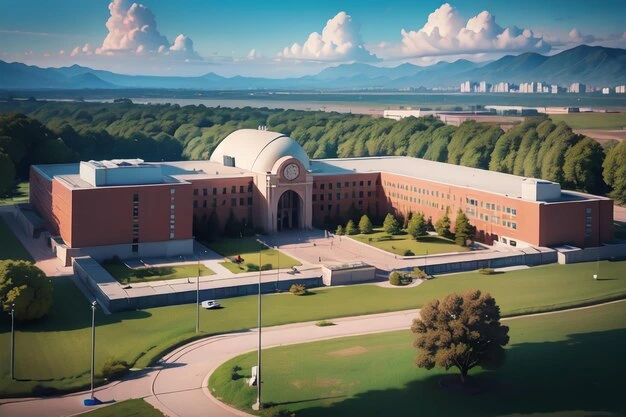
Fee Structure and Costs to Study MBBS in Belgium 2025-26
Studying MBBS in Belgium is an attractive option for many international students due to its high-quality education and globally recognized medical degrees. However, it is essential to have a clear understanding of the fee structure and associated costs to plan your finances effectively.
Tuition Fees to Study MBBS in Belgium
Tuition fees for studying MBBS in Belgium vary significantly depending on the university, the program’s language, and whether the institution is public or private. On average, the tuition fees for international students range from €4,500 to €12,000 per year. Here’s a closer look at the tuition fees for some of the top universities offering MBBS programs:
- Public Universities: Generally have lower tuition fees for EU students but may charge higher rates for non-EU students.
- Private Institutions: Often charge higher tuition fees, reflecting the additional services they provide.
Other Fees and Financial Costs Associated to Study MBBS in Belgium
In addition to tuition fees, students should budget for several other costs associated with studying medicine in Belgium:
- Application Fees: Most universities charge an application fee ranging from €50 to €100.
- Health Insurance: Mandatory health insurance costs approximately €300 to €600 per year for international students.
- Visa Fees: The visa application fee is around €180, and this cost should be included in your financial planning.
- Accommodation: Monthly rental prices can vary widely based on location and type of housing, typically ranging from €250 to €600 per month.
- Living Expenses: Students should budget around €800 to €1,200 per month for food, transportation, and personal expenses.
Detailed Breakdown of Fees to Study Medicine in Belgium
Here is a detailed breakdown of the fees and costs associated with studying medicine in Belgium for the 2025-26 academic year:
| Expense Category | Estimated Annual Cost |
|---|---|
| Tuition Fees | €4,500 – €12,000 |
| Application Fees | €50 – €100 |
| Health Insurance | €300 – €600 |
| Visa Fees | €180 |
| Accommodation (monthly) | €3,000 – €7,200 (annual) |
| Living Expenses (monthly) | €9,600 – €14,400 (annual) |
| Total Estimated Cost | €20,230 – €43,500 |
- Note: Costs may vary based on individual lifestyle choices and the specific university attended.
Hidden Costs to Study MBBS in Belgium
While budgeting for studying MBBS in Belgium, it is crucial to consider hidden costs that may arise. Some common hidden costs include:
- Textbooks and Supplies: Students may spend around €500 to €800 annually on textbooks, lab supplies, and other academic materials.
- Transportation: Monthly public transport passes range from €50 to €80 depending on the city. Consider additional travel costs for trips outside the city.
- Social Activities: Participating in social events, clubs, or extracurricular activities can add up, with costs varying widely based on personal preferences.
- Emergency Funds: Setting aside funds for unexpected expenses is advisable to avoid financial strain.
Financial Planning to Study MBBS in Belgium
Effective financial planning is essential for students looking to study MBBS in Belgium. Here are some strategies to help manage your finances:
- Create a Budget: Outline all expected costs, including tuition, living expenses, and additional fees. Stick to this budget as closely as possible.
- Explore Scholarship Options: Many universities and organizations offer scholarships for international students. Research and apply for scholarships that can help reduce your financial burden.
- Consider Part-Time Work: International students in Belgium are permitted to work up to 20 hours per week during the academic year. Look for part-time job opportunities to supplement your income.
- Open a Local Bank Account: Opening a bank account in Belgium can help you manage your finances more effectively and minimize international transaction fees.
Want To Study in Belgium?

Top Medical Universities to Study MBBS in Belgium 2025-26
Belgium is home to several prestigious medical universities that offer high-quality education for students pursuing MBBS. These institutions provide a comprehensive curriculum and excellent training facilities, making them ideal for aspiring medical professionals.
Top Universities in Belgium for Medical Studies & What’s Universities Offer
| Top University in Belgium for MBBS | QS World Rankings by Subject 2025 | Belgium MBBS Fees |
| KU Leuven | 31 | €7,100/year |
Ghent university | 77 | €1,092.10/year |
| UCLouvain | 148 | €2,505/year |
| University of Antwerp | 224 | € 3,100/year |
| Université Libre de Bruxelles | 201 | € 2,505/ year |
Vrije Universiteit Brussel | 288 | € 3,253.60 |
Universities in Belgium That Offer MBBS Programs
The following universities offer MBBS or equivalent medical programs in Belgium:
- KU Leuven: Offers an extensive medical program focusing on research and clinical skills.
- Université Libre de Bruxelles: Provides a comprehensive medical degree with options for specialization.
- Ghent University: Known for its robust medical curriculum and practical training.
- University of Antwerp: Offers a strong medical program with a focus on patient care and research.
These institutions ensure that students receive a well-rounded education that meets international standards.
Best Medical Colleges in Belgium for Indian Students
For Indian students, choosing the right university is crucial for a successful medical career. The following are some of the best medical colleges in Belgium:
- KU Leuven: Highly regarded for its innovative teaching methods and research opportunities, making it an excellent choice for Indian students.
- Université Libre de Bruxelles: Offers diverse programs and support services for international students, facilitating a smooth transition to studying abroad.
- Ghent University: Provides a multicultural environment and advanced medical training that attracts many Indian students.
These universities not only offer high-quality education but also a supportive environment for international students, enhancing their overall experience in Belgium.
Want To Study in Belgium?
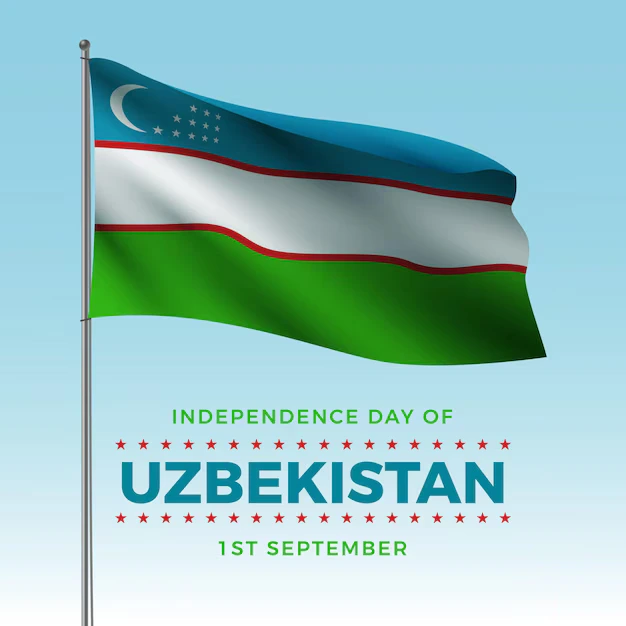
Advantages of Studying MBBS in Belgium 2025-26
Belgium provides numerous advantages for students pursuing MBBS, making it a preferred choice for aspiring medical professionals worldwide.
Affordable Medical Education in Belgium
Studying medicine in Belgium can be more affordable compared to other Western European countries. The tuition fees for international students range from €4,500 to €12,000 per year, depending on the university. This affordability is coupled with the relatively lower cost of living in many Belgian cities, making it an attractive option for students.
Research Opportunities in Belgium’s Medical Universities
Belgium’s medical universities are renowned for their focus on medical research. Students have the opportunity to engage in various research projects, collaborating with experienced faculty members. This exposure to cutting-edge research enhances their learning experience and prepares them for future challenges in the medical field.
- Collaboration: Many universities have partnerships with healthcare institutions and research centers, providing students with valuable hands-on experience.
- Funding: Numerous research grants and funding opportunities are available for students involved in medical research.
Advanced Medical Curriculum and Technology in Belgium
Belgian medical colleges offer an advanced medical curriculum that incorporates the latest developments in medical science and technology. Students benefit from:
- State-of-the-art Facilities: Many universities are equipped with modern laboratories, simulation centers, and research facilities, ensuring that students receive hands-on training.
- Technology Integration: The integration of technology in teaching methods enhances the learning experience, allowing students to gain proficiency in the latest medical technologies.
International Exposure in Medical Colleges in Belgium
Studying MBBS in Belgium provides significant international exposure. With a diverse student population from various countries, students benefit from:
- Cultural Exchange: Engaging with peers from different backgrounds fosters cultural understanding and adaptability, essential qualities for future medical professionals.
- Global Networking: Building connections with fellow students and faculty can open doors for future career opportunities, both in Belgium and internationally.
Want To Study in Belgium?
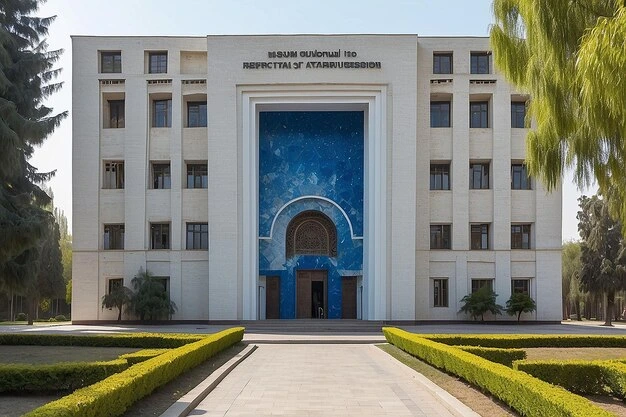
Course Details and Curriculum of Studying MBBS in Belgium 2025-26
Studying MBBS in Belgium offers a comprehensive curriculum that integrates theoretical knowledge with practical skills. The course is designed to prepare students for a successful career in medicine, providing a robust foundation in medical sciences and clinical practice.
MBBS Curriculum and Structure in Belgium
The MBBS curriculum in Belgium is structured to cover both foundational and advanced medical subjects. Typically, the curriculum includes:
Preclinical Phase: The first few years focus on basic medical sciences, including subjects such as Anatomy, Physiology, and Biochemistry. Students engage in lectures, laboratory work, and practical sessions to understand the human body and its functions.
Clinical Phase: In later years, the curriculum shifts towards clinical training, where students gain hands-on experience in hospitals and clinics. This phase includes rotations in various medical specialties such as Internal Medicine, Surgery, Pediatrics, and Psychiatry.
Integrated Approach: The curriculum emphasizes an integrated approach, combining theoretical knowledge with practical applications. This method helps students apply their learning in real-world clinical settings.
MBBS Duration in Belgium
The duration of the MBBS program in Belgium is typically six years. This duration is divided into:
- Three years of preclinical studies: Focusing on foundational medical sciences.
- Three years of clinical training: Involving practical exposure through internships and rotations in hospitals.
Some universities may offer accelerated pathways for students with prior relevant qualifications, so it is essential to check with specific institutions for details.
Academic Support Services for MBBS Students in Belgium
Belgian universities provide various academic support services to help MBBS students succeed in their studies. Key support services include:
Tutoring Programs: Many universities offer tutoring sessions led by experienced faculty or senior students to assist with challenging subjects.
Study Groups: Encouraging collaborative learning, study groups provide opportunities for peer support and knowledge sharing.
Counseling Services: Universities offer mental health and academic counseling to help students manage stress and maintain well-being throughout their studies.
Research and Laboratory Facilities for MBBS Students
Belgium is known for its strong emphasis on research and innovation in medical education. Key facilities include:
State-of-the-Art Laboratories: Medical universities are equipped with modern laboratories for practical training in fields such as Biochemistry, Microbiology, and Pathology.
Research Centers: Many universities have dedicated research centers focusing on various medical fields, allowing students to engage in ongoing research projects and contribute to medical advancements.
Online Learning Resources for MBBS Students
The use of technology in education has become increasingly important in Belgium, especially in light of recent global events. MBBS students have access to a range of online learning resources, including:
E-Learning Platforms: Universities provide access to comprehensive e-learning platforms, where students can find lecture notes, video tutorials, and interactive quizzes.
Virtual Simulations: Many programs incorporate virtual simulations to enhance practical learning experiences, particularly in clinical skills training.
Online Libraries: Students have access to extensive online libraries and databases for research and study purposes, ensuring they can access a wide range of academic resources.
Use of Technology in Medical Education in Belgium
Belgian medical universities are at the forefront of integrating technology in medical education. This includes:
Digital Learning Tools: The use of digital tools and applications enhances learning experiences, enabling students to engage with complex medical concepts more effectively.
Telemedicine Training: With the rise of telemedicine, many universities incorporate training in telehealth practices, preparing students for modern healthcare environments.
Want To Study in Belgium?

Studying MBBS in Belgium Syllabus
The syllabus for studying MBBS in Belgium is comprehensive and designed to provide students with the necessary knowledge and skills to succeed in their medical careers.
Key Subjects and Curriculum for MBBS in Belgium
The syllabus includes a wide range of subjects covering essential medical disciplines:
- Basic Medical Sciences: Anatomy, Physiology, Biochemistry, Histology, and Genetics.
- Clinical Sciences: Pathology, Pharmacology, Microbiology, and Community Medicine.
- Practical Skills: Clinical skills, patient communication, and diagnostic techniques.
MBBS in Belgium Syllabus Breakdown
A typical breakdown of the syllabus over the six years includes:
| Year | Subjects | Focus |
|---|---|---|
| Year 1 | Anatomy, Physiology, Biochemistry | Basic understanding of human biology |
| Year 2 | Histology, Genetics, Microbiology | Cell structure and function, diseases |
| Year 3 | Pathology, Pharmacology | Disease mechanisms, drug interactions |
| Year 4 | Clinical Skills, Internal Medicine | Practical patient care and assessments |
| Year 5 | Surgery, Pediatrics, Psychiatry | Specialized clinical training |
| Year 6 | Community Medicine, Electives | Public health, specialized rotations |
Internship Structure and Details in Belgium
The final year of the MBBS program typically includes a mandatory internship, allowing students to gain practical experience in various medical fields. Key details include:
Rotations: Students rotate through different departments in hospitals, gaining hands-on experience in Internal Medicine, Surgery, Pediatrics, and more.
Supervised Practice: Interns work under the supervision of experienced doctors, allowing them to apply their theoretical knowledge in real-world situations.
Assessment: Internships are assessed through evaluations from supervising physicians, contributing to the overall grading of the MBBS program.
Licensing Exams after MBBS in Belgium
After completing the MBBS program, graduates must pass licensing exams to practice medicine in Belgium. This process typically involves:
National Licensing Examination: Students must pass a national examination to obtain a license to practice as a physician in Belgium.
Continuous Professional Development: Graduates are encouraged to engage in lifelong learning and professional development through workshops, conferences, and additional certifications.
Ethical Practices in Medical Education in Belgium
Belgian medical universities place a strong emphasis on ethical practices in medical education. Key components include:
Ethics Curriculum: Courses on medical ethics and professional conduct are integrated into the curriculum, ensuring students understand the ethical implications of their decisions.
Patient-Centered Care: Emphasis is placed on the importance of compassionate and ethical care for patients, fostering a strong moral foundation in future healthcare professionals.
Environmental Sustainability in Medical Universities in Belgium
Belgian universities are increasingly focusing on environmental sustainability within their medical education. Initiatives include:
Sustainable Practices: Many universities implement green practices in their operations, such as waste reduction, energy efficiency, and promoting sustainable healthcare solutions.
Research in Sustainability: Students may have opportunities to engage in research projects related to environmental health and sustainable practices in medicine.
Want To Study in Belgium?
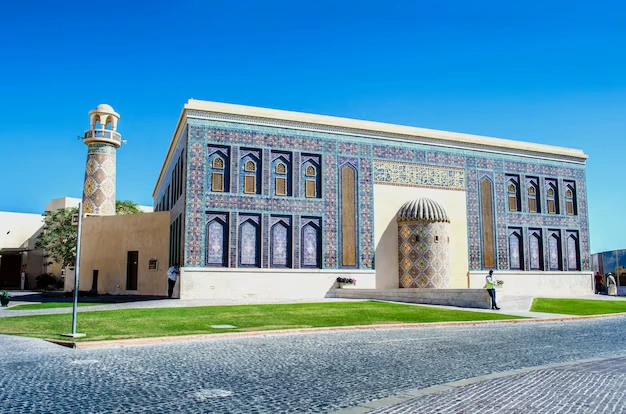
Opportunities and Career Prospects After Studying MBBS in Belgium 2025-26
Studying MBBS in Belgium not only provides students with a robust medical education but also opens up numerous opportunities and career prospects in the healthcare field. With a focus on quality education and hands-on experience, graduates are well-equipped to pursue various career paths after completing their studies.
Career and Job Prospects After MBBS in Belgium
Graduates from Belgian medical universities have a wide range of career options. The career and job prospects include:
- Clinical Practice: Graduates can work as general practitioners or specialists in hospitals, clinics, or private practices in Belgium and other countries.
- Public Health: Opportunities in public health organizations, focusing on community health, epidemiology, and health education.
- Research Positions: Many medical graduates pursue careers in medical research, working in laboratories, universities, or pharmaceutical companies.
- Healthcare Management: Graduates can also explore roles in healthcare administration, policy-making, and management.
The demand for healthcare professionals in Belgium and the broader European market remains high, providing ample job opportunities for MBBS graduates.
Higher Studies and Specializations after MBBS in Belgium
After completing their MBBS, graduates often seek further education or specialization. Options for higher studies and specializations after MBBS in Belgium include:
- Residency Programs: Graduates can apply for residency programs in various specialties such as surgery, internal medicine, pediatrics, and psychiatry.
- Master’s Degrees: Many graduates pursue Master’s programs in specialized fields such as public health, medical research, or healthcare management.
- PhD Programs: For those interested in academia or advanced research, pursuing a PhD in medicine or related fields is an option.
These pathways allow graduates to enhance their expertise and career prospects significantly.
Licensing and Practice Medicine in Belgium
To practice medicine in Belgium, graduates must obtain a license. The licensing process includes:
- National Licensing Examination: Graduates must pass the national medical licensing exam to practice medicine in Belgium.
- Registration with Medical Board: After passing the exam, graduates need to register with the local medical board to receive their practicing license.
- Continuous Education: Licensed practitioners are required to participate in continuous education programs to stay updated with the latest medical advancements and practices.
Obtaining a license is essential for those looking to establish a career in the medical field in Belgium.
Part-Time Work Opportunities for MBBS Students in Belgium
While studying, many MBBS students in Belgium seek part-time work opportunities to support their education and gain experience. Part-time work opportunities for MBBS students in Belgium include:
- Research Assistant Positions: Students may find part-time roles assisting in research projects at universities or hospitals.
- Tutoring: Offering tutoring services in subjects like biology, chemistry, or language can be a flexible job option.
- Internships: Some medical schools provide internships that can be counted as part of their education while earning a stipend.
Working part-time not only helps students financially but also enriches their experience and enhances their resumes.
Post-MBBS Job Placement Services in Belgium
Many universities in Belgium offer post-MBBS job placement services to assist graduates in finding employment. These services typically include:
- Career Counseling: Personalized counseling to help students identify their career goals and develop job search strategies.
- Job Fairs and Networking Events: Universities often organize job fairs and networking events, connecting students with potential employers in the healthcare sector.
- Internship Opportunities: Access to internship programs that often lead to full-time job offers.
These placement services can significantly ease the transition from student to professional for new graduates.
Alumni Network for MBBS Graduates from Belgium
An essential aspect of building a successful career after studying MBBS is leveraging the alumni network of Belgian medical universities. Key benefits of alumni networks include:
- Networking Opportunities: Alumni networks provide access to a wide range of professionals in various medical fields, facilitating valuable connections.
- Mentorship Programs: Many universities offer mentorship programs where experienced alumni guide recent graduates in their career paths.
- Job Referrals: Alumni often refer job openings to their network, providing graduates with insider opportunities in various healthcare organizations.
Being part of an active alumni network can greatly enhance career prospects for MBBS graduates.
Want To Study in Belgium?
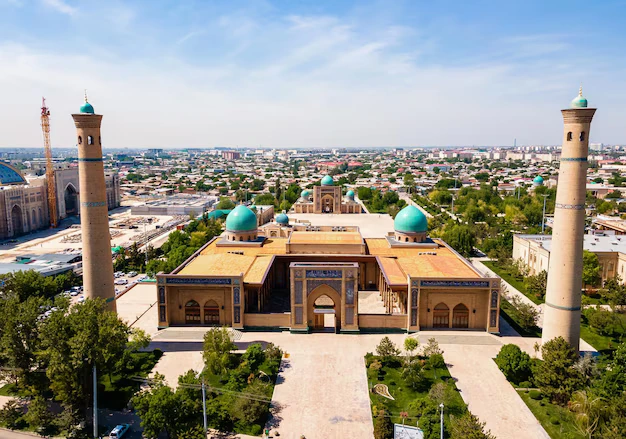
Studying MBBS in Belgium vs MBBS in India 2025-26
Studying MBBS in Belgium presents a different landscape compared to pursuing an MBBS degree in India. This comparison highlights various aspects, including post-graduation opportunities, recognition of degrees, costs, and advantages of each option.
Post Graduation Opportunities after MBBS in Belgium vs India
Post Graduation in Belgium: Graduates from Belgian universities have access to a wide array of specialization options in various fields of medicine. The pathways for higher studies often lead to internationally recognized residencies and fellowship programs. Belgian medical graduates are eligible to apply for residency programs in Europe and beyond, which enhances their global career prospects.
Post Graduation in India: In India, post-graduation opportunities include MD and MS programs, with entrance exams being highly competitive. Indian medical graduates often pursue higher studies within India or seek opportunities abroad. However, securing a seat in postgraduate programs can be challenging due to limited availability and high competition.
Recognition of MBBS from Belgium vs India
Recognition of MBBS from Belgium: The MBBS degree from Belgium is recognized by various international medical councils, including the World Health Organization (WHO) and the Educational Commission for Foreign Medical Graduates (ECFMG). This recognition allows graduates to practice medicine in many countries, including the USA and Canada, provided they meet additional licensing requirements.
Recognition of MBBS from India: Indian MBBS degrees are recognized by the Medical Council of India (MCI) and various foreign medical boards. However, Indian graduates must often pass exams such as the Foreign Medical Graduate Examination (FMGE) to practice in other countries. The recognition of Indian medical degrees can vary by country, with some nations having stricter licensing requirements.
Cost and Advantages of Studying MBBS in Belgium vs India
Cost of Studying in Belgium: The overall cost of living in Belgium, including accommodation, food, and other expenses, can amount to €10,000 to €14,000 annually. However, the investment in education is often justified by the high-quality training and better job prospects.
Cost of Studying in India: The cost of pursuing MBBS in India varies significantly based on the type of institution. Government medical colleges charge lower fees (around INR 10,000 to 50,000 per year), while private colleges can charge between INR 5 to 20 lakhs per year. Although the initial cost may be lower in India, the high competition for quality education and postgraduate opportunities can be a disadvantage.
Advantages of Studying in Belgium:
- High-quality education with a globally recognized degree.
- Opportunities for research and practical training in advanced facilities.
- Multicultural environment and exposure to international medical practices.
Advantages of Studying in India:
- Lower tuition fees and living costs in comparison to Western countries.
- Familiarity with local healthcare systems, which can be beneficial for practice in India.
Want To Study in Belgium?

Studying MBBS in Belgium vs MBBS in Other Countries 2025-26
When considering where to pursue an MBBS degree, many students compare Belgium with other countries. This section explores why studying MBBS in Belgium can be a preferred option.
Why Study MBBS in Belgium and Not Other Countries?
- Quality of Education: Belgium is known for its high standard of medical education, combining theory with practical training in state-of-the-art facilities.
- Affordability: While countries like the USA and UK often have exorbitant tuition fees, Belgium offers a relatively affordable alternative without compromising on quality.
- Recognition: Degrees from Belgium are recognized globally, making it easier for graduates to practice medicine in various countries, including those in Europe and North America.
Comparison of MBBS in Belgium to Other MBBS Abroad Countries
| Criteria | Belgium | Germany | Ukraine | Philippines |
|---|---|---|---|---|
| Tuition Fees | €4,500 – €12,000 | €2,500 – €20,000 | €3,000 – €6,000 | $3,500 – $5,500 |
| Duration | 6 years | 6 years | 6 years | 5 years |
| Language of Instruction | English/Dutch/French | German/English | English | English |
| Recognition | WHO, ECFMG | WHO, EU recognition | WHO, various countries | WHO, some countries |
| Post-Graduation Opportunities | High, especially in Europe | Good, mainly in Europe | Varies by country, limited in EU | Limited in the USA |
- Post-Graduation Opportunities: While studying MBBS in Belgium, graduates have excellent opportunities for further studies and job placements across Europe, unlike in some countries where options may be limited.
- Language Barrier: Studying in Belgium provides options for English-taught programs, making it more accessible compared to countries where local languages are required for admission or practice.
Want To Study in Belgium?

Scholarships and Financial Aids to Study MBBS in Belgium 2025-26
Studying MBBS in Belgium can be a significant financial investment for international students. However, various scholarships and financial aids are available to help ease the financial burden and make medical education more accessible.
Scholarships in Belgium for MBBS Students
Several scholarships are specifically aimed at MBBS students pursuing their studies in Belgium. Some notable options include:
VLIR-UOS Scholarships: These scholarships are available for students from developing countries, covering tuition fees and living costs for students enrolled in specific programs, including MBBS.
Erasmus Mundus Scholarships: These scholarships are available for international students participating in joint master’s programs offered by multiple universities in Belgium and other European countries. Some programs related to medicine may qualify.
University-Specific Scholarships: Many Belgian universities offer their own scholarships for international students. For instance, KU Leuven and Ghent University have various merit-based and need-based scholarships that can significantly reduce tuition costs.
Government Scholarships: The Belgian government also provides scholarships for international students, which can include financial assistance for MBBS programs.
Financial Aids to Study MBBS in Belgium
In addition to scholarships, several financial aid options are available for students studying MBBS in Belgium:
Grants and Bursaries: Some universities offer grants and bursaries to students based on financial need or academic merit. These funds can help cover tuition fees or living expenses.
Student Loans: While Belgium does not have specific student loan programs for international students, some students may explore loans from their home country that can be used for studying abroad.
Work Opportunities: International students in Belgium are allowed to work part-time (up to 20 hours per week) during their studies. This can provide additional financial support while studying.
How to Apply for Scholarships and Financial Aids in Belgium
The application process for scholarships and financial aid in Belgium generally involves the following steps:
Research: Begin by researching the available scholarships and financial aid options specific to the university and program you are interested in.
Eligibility Check: Review the eligibility criteria for each scholarship and financial aid option to ensure you meet the requirements.
Prepare Documents: Commonly required documents include academic transcripts, letters of recommendation, a personal statement, and proof of language proficiency.
Application Submission: Complete the application forms for the scholarships and financial aid you are applying for, ensuring all required documents are submitted by the deadlines.
Interviews: Some scholarships may require interviews as part of the selection process.
Await Results: After submitting applications, wait for the results and follow up with any additional requirements if selected.
Want To Study in Belgium?

MBBS Options for Indian Students Other Than Studying MBBS in Belgium 2025
Indian students seeking alternatives to studying MBBS in Belgium have several options in various countries.
Popular Countries for MBBS Studies Other Than Belgium
Germany: Known for its high-quality medical education, Germany offers free or low-cost education at public universities. Many programs are available in English, particularly at the postgraduate level.
Ukraine: Ukraine is becoming a popular destination for Indian students due to its affordable tuition fees and English-taught programs. Universities like Kharkiv National Medical University and O.O. Bogomolets National Medical University are well-regarded.
Russia: Russian universities offer MBBS programs at competitive prices, with a significant number of courses available in English. Institutions such as Kazan Federal University and Moscow State University are popular choices.
Philippines: The Philippines offers a unique opportunity for Indian students to study MBBS with a curriculum based on the American medical education system. The cost of living and tuition fees are relatively low.
China: China has numerous universities offering MBBS programs in English, often at lower tuition rates than Western countries.
Feasible Options to Study Medicine in Belgium vs Other Countries
| Criteria | Belgium | Germany | Ukraine | Philippines |
|---|---|---|---|---|
| Tuition Fees | €4,500 – €12,000 | Free to €20,000 | €3,000 – €6,000 | $3,500 – $5,500 |
| Duration | 6 years | 6 years | 6 years | 5 years |
| Language of Instruction | English/Dutch/French | German/English | English | English |
| Recognition | WHO, ECFMG | WHO, EU recognition | WHO, various countries | WHO, some countries |
| Living Costs | €10,000 – €14,000 | €8,000 – €12,000 | €5,000 – €8,000 | $2,000 – $5,000 |
Pros and Cons of MBBS in Belgium vs Other Destinations
Pros of Studying MBBS in Belgium:
- High-quality education with a globally recognized degree.
- Opportunities for research and practical training in advanced facilities.
- A multicultural environment that enriches the student experience.
Cons of Studying MBBS in Belgium:
- Higher tuition fees compared to some countries like Ukraine or the Philippines.
- The necessity of proficiency in local languages for certain programs.
Pros of Studying MBBS in Other Countries:
- More affordable tuition and living costs, particularly in countries like Ukraine and the Philippines.
- Many universities offer courses taught entirely in English.
Cons of Studying MBBS in Other Countries:
- Some degrees may have limited international recognition, which can affect career opportunities abroad.
- Language barriers and cultural adjustments may pose challenges.
Want To Study in Belgium?

Living Cost While You Study MBBS in Belgium 2025-26
Studying MBBS in Belgium is an exciting opportunity for international students, but it is essential to understand the living costs associated with studying abroad. This overview provides insights into lifestyle, culture, safety, accommodation, and comparative living costs for medical students in Belgium.
Lifestyle, Culture, and Student Life in Belgium
Belgium boasts a rich cultural heritage and a vibrant lifestyle, making it an appealing destination for international students. Key aspects include:
Cultural Diversity: Belgium is known for its multicultural environment, with three official languages: Dutch, French, and German. Students from various backgrounds come together, enriching the educational experience.
Lifestyle: Students often enjoy a high standard of living, with access to various leisure activities, including museums, theaters, and outdoor events. Belgian cuisine, famous for its chocolates, waffles, and beer, adds to the cultural experience.
Student Life: The student community is active, with many universities hosting events, workshops, and festivals throughout the year. Students can participate in various activities that promote social interaction and cultural exchange.
Safety and Accommodation for International Students in Belgium
Safety is a significant concern for international students. Here’s what to consider regarding safety and accommodation:
Safety: Belgium is generally safe for international students. However, like any urban area, students should remain vigilant and take precautions, especially in crowded places. Universities provide safety information and support services to ensure students feel secure.
Accommodation Options: International students have several accommodation options, including university dormitories, private rentals, and shared apartments. Monthly accommodation costs can range from €250 to €600, depending on location and type of housing.
| Accommodation Type | Estimated Monthly Cost | Description |
|---|---|---|
| University Dormitory | €250 – €450 | Affordable and student-friendly |
| Private Apartment (Shared) | €300 – €600 | More independence and privacy |
| Private Studio Apartment | €500 – €800 | Fully furnished, ideal for single living |
Comparative Living Costs for Medical Students in Various Countries
Understanding the living costs in Belgium compared to other countries can help students make informed decisions. Here’s a breakdown of estimated monthly living expenses for medical students:
| Country | Estimated Monthly Cost | Tuition Fees |
|---|---|---|
| Belgium | €800 – €1,200 | €4,500 – €12,000 |
| Germany | €700 – €1,000 | Free to €20,000 |
| Ukraine | €300 – €600 | €3,000 – €6,000 |
| Philippines | $200 – $500 | $3,500 – $5,500 |
- Conclusion: While the living costs in Belgium are on the higher end compared to countries like Ukraine or the Philippines, the quality of education and overall student experience can justify the expenses.
Language and Communication for International Students in Belgium
Effective communication is crucial for international students in Belgium:
Language Proficiency: While many courses, especially in medical programs, are taught in English, students may encounter local languages in daily life. It is beneficial to learn basic phrases in Dutch or French to facilitate daily interactions.
Language Support: Most universities offer language courses and resources to help students improve their language skills, ensuring they can navigate their new environment effectively.
Extracurricular Activities and Student Clubs in Belgium
Extracurricular activities play an essential role in student life in Belgium:
Student Clubs: Universities in Belgium offer a wide variety of student clubs and organizations. These clubs range from academic societies, cultural associations, and sports teams to volunteer groups. Joining these clubs provides students with opportunities to meet new people and develop new skills.
Events and Festivals: Students can participate in various local events and festivals, allowing them to immerse themselves in Belgian culture. Engaging in these activities helps in building a network and enhancing the overall experience of studying abroad.
Volunteering Opportunities: Many universities encourage students to participate in community service and volunteering programs, fostering social responsibility and giving back to the community.
Want To Study in Belgium?

Health and Safety While Studying MBBS in Belgium
Studying MBBS in Belgium offers international students a blend of quality education and a safe environment. However, it’s crucial to prioritize health and safety during your academic journey. This section provides detailed insights into healthcare facilities, insurance requirements, vaccinations, safety tips, and mental health services available for students.
Healthcare Facilities for International Students in Belgium
Belgium boasts a robust healthcare system that caters well to international students. Here are some key points regarding healthcare facilities:
Access to Healthcare: All students, including international students, have access to public healthcare services in Belgium. This includes hospitals, general practitioners, and specialized clinics.
University Health Services: Many universities provide on-campus health services, offering consultations for minor health issues, mental health support, and wellness programs. These services often include general medical care and referrals to specialists when necessary.
Emergency Services: In case of emergencies, students can call 112 for ambulance services. Hospitals are well-equipped to handle emergencies, with trained personnel available 24/7.
Health Insurance Requirements for International Students
Health insurance is a mandatory requirement for international students studying MBBS in Belgium. Here’s what to consider:
Types of Insurance: Students can opt for private health insurance or join a mutualité (health insurance fund). The coverage should ideally include doctor visits, hospital stays, and medication.
Cost of Health Insurance: The average cost of health insurance for students ranges from €25 to €100 per month, depending on the coverage and provider. It’s essential to compare plans to find the most suitable option for your needs.
Documentation: Students must provide proof of health insurance during the visa application process and may need to show it when registering at their university.
Vaccination and Medical Check-up Requirements for MBBS Students
Certain vaccinations and health check-ups are essential for MBBS students in Belgium:
Recommended Vaccinations: Students are advised to have vaccinations against common diseases such as Hepatitis B, MMR (Measles, Mumps, and Rubella), and Tetanus. Some universities may require specific vaccinations before enrollment.
Medical Check-ups: Although there are no strict medical check-up requirements for entering Belgium, students are encouraged to have a health screening prior to arrival to address any underlying health issues.
Vaccination Records: Keeping a record of vaccination history can be beneficial when registering for courses or seeking employment opportunities in the healthcare field.
Safety Tips and Resources for MBBS Students in Belgium
Ensuring personal safety is vital for international students. Here are some safety tips and resources:
Stay Aware of Your Surroundings: Always be mindful of your environment, especially in crowded places or during nighttime. Avoid walking alone late at night and opt for well-lit areas.
Emergency Contacts: Save important numbers, such as your university’s emergency contact, local police (101), and ambulance services (112), in your phone for quick access.
Transportation Safety: Utilize public transportation options, such as buses and trains, which are generally safe. Always keep personal belongings secure and remain cautious of pickpockets, especially in busy areas.
University Resources: Many universities offer orientation programs that include safety training and resources to help students navigate living in a new country.
Mental Health and Counseling Services in Belgium
Mental health is a crucial aspect of overall well-being, especially for students adjusting to a new environment. Here’s what is available:
University Counseling Services: Most universities in Belgium provide counseling services to support students dealing with stress, anxiety, or academic pressures. These services often include free or low-cost therapy sessions.
Mental Health Awareness: Institutions promote mental health awareness through workshops, support groups, and events that encourage open discussions about mental health issues.
Community Support: Belgium has numerous mental health organizations that provide additional resources, including hotlines and support groups tailored to international students.
Crisis Support: In case of an emergency, students can contact local mental health hotlines or hospital emergency services for immediate assistance.
Want To Study in Belgium?

Financial Planning to Study MBBS in Belgium
When planning to study MBBS in Belgium, understanding and preparing for the financial aspects is crucial for international students. This section outlines the tuition fees, living expenses, and financial aid options available, along with tips for effective budgeting to ensure a smooth academic journey.
Tuition Fees for MBBS in Belgium
Tuition fees are one of the most significant financial considerations for students. Here’s what you need to know:
Public Universities: Tuition fees for MBBS programs at public universities in Belgium typically range between €835 to €4,175 per year for EU students. However, for non-EU students, fees can be higher, ranging from €4,000 to €10,000 annually, depending on the university and the program.
Private Institutions: MBBS programs at private universities tend to have higher tuition fees, which can go up to €15,000 per year.
Language Considerations: Medical programs taught in French or Dutch may have lower fees, while English-taught MBBS programs, which are more popular among international students, tend to be more expensive.
Cost of Living in Belgium for MBBS Students
Living expenses in Belgium vary depending on the city and the lifestyle of the student. Here is a breakdown of common costs:
Accommodation: Rent can vary widely depending on the location. On average, student housing costs between €300 to €600 per month for shared accommodations. Private apartments can cost more, up to €800 per month in larger cities like Brussels or Antwerp.
Food: Monthly food expenses can range from €150 to €300. Students can save by cooking at home and purchasing groceries from local markets.
Transport: Public transportation is efficient, with monthly passes costing approximately €50 for students. Many universities also offer discounts on transportation.
Utilities and Internet: Bills for utilities (electricity, water, heating) typically add up to €100 to €150 per month. Internet costs are usually around €30 to €40 per month.
Miscellaneous Expenses: Other expenses, such as entertainment, health insurance, and personal items, can add around €200 to €300 per month.
Summary of Monthly Living Costs:
| Expense | Estimated Monthly Cost (€) |
|---|---|
| Accommodation | 300 – 600 |
| Food | 150 – 300 |
| Transportation | 50 |
| Utilities & Internet | 130 – 190 |
| Miscellaneous Expenses | 200 – 300 |
| Total | 830 – 1,440 |
Scholarships and Financial Aids for MBBS Students in Belgium
While Belgium offers high-quality medical education, the costs can be significant for international students. Scholarships and financial aid programs are available to ease the financial burden.
Government Scholarships: International students can apply for the VLIR-UOS Scholarships, which cover tuition fees, living costs, and travel expenses for students from developing countries. Similarly, the ARES Scholarships offer financial support for students pursuing health and medical studies.
University-Specific Scholarships: Many universities in Belgium offer merit-based scholarships to international students. These scholarships cover a portion of the tuition fees and, in some cases, provide stipends for living expenses.
Private Grants: Organizations and foundations in Belgium also provide scholarships for international students pursuing medical degrees, such as the Belgian American Educational Foundation (BAEF) and The King Baudouin Foundation.
Part-Time Work Opportunities
While scholarships can cover a portion of the costs, many students take up part-time jobs to support their studies. Here’s what to consider:
Work Permit: International students from non-EU countries can work part-time during their studies with a student work permit. You are allowed to work up to 20 hours per week during the academic year, and full-time during holidays.
Average Earnings: Part-time jobs in Belgium typically pay between €8 to €12 per hour, depending on the nature of the job and the location.
Types of Jobs: Common part-time jobs include working in restaurants, retail, tutoring, and administrative roles at universities. Students with proficiency in French or Dutch have more job opportunities.
Budgeting Tips for MBBS Students
Effective financial planning requires careful budgeting. Here are some tips to manage finances while studying MBBS in Belgium:
Create a Monthly Budget: Track your monthly income and expenses, including rent, utilities, groceries, transportation, and entertainment. Ensure that you allocate a portion of your budget to savings for emergencies.
Take Advantage of Student Discounts: Many shops, restaurants, and transportation services offer discounts for students. Always carry your student ID to benefit from these offers.
Limit Non-Essential Spending: To stay within budget, limit your spending on non-essential items such as dining out frequently or expensive leisure activities.
Plan Ahead for Travel: If you plan to travel within Belgium or Europe, book tickets and accommodation in advance to take advantage of early-bird discounts.
Hidden Costs to Study MBBS in Belgium medical degree
While tuition and living expenses are well-documented, there are hidden costs that students should be aware of:
Visa Application Fees: The cost of applying for a Belgian student visa can range from €180 to €220, depending on your country of origin.
Health Insurance: International students are required to have health insurance, which can cost around €30 to €100 per month.
Books and Study Materials: Medical textbooks and other study materials can be expensive, adding an additional €500 to €1,000 per year to your costs.
Travel and Relocation: Initial relocation expenses, including airfare, deposits for accommodation, and local transportation upon arrival, can add up to €1,000 to €2,000.
Want To Study in Belgium?

Frequently Asked Questions for Studying MBBS in Belgium 2025-26
What is the duration of the MBBS program in Belgium?
The duration of the MBBS program in Belgium is generally 6 years. This includes:
- 3 years of theoretical study (pre-clinical phase)
- 3 years of clinical training (clinical phase), which involves internships and hands-on experience in hospitals.
What is the best medical college in Belgium?
Belgium is home to several prestigious medical schools. The top-ranked institutions for studying MBBS include:
- KU Leuven (Katholieke Universiteit Leuven) – One of the oldest and most prestigious universities in Europe.
- Ghent University – Known for its advanced medical curriculum and research facilities.
- Université Catholique de Louvain (UCLouvain) – A top choice for medical studies, offering a high standard of education.
- Université Libre de Bruxelles (ULB) – Known for its international medical programs.
What are the eligibility criteria for MBBS in Belgium?
To be eligible for an MBBS program in Belgium, students typically need to meet the following criteria:
- Completion of secondary education with a focus on science subjects (Biology, Chemistry, Physics).
- A good command of English, Dutch, or French depending on the university’s medium of instruction.
- NEET qualification is not required for Indian students, but they must meet the academic requirements of the respective university.
- Some universities may require students to pass an entrance exam.
What is the MBBS admission process in Belgium?
The admission process for MBBS in Belgium involves the following steps:
- Check eligibility requirements for your chosen university.
- Submit an online application through the university’s portal.
- Provide academic transcripts, proof of language proficiency (IELTS/TOEFL for English), and other required documents.
- Attend a university-specific entrance exam or interview if applicable.
- Upon acceptance, apply for a student visa to study in Belgium.
What is the MBBS fees structure in Belgium for 2025?
MBBS fees in Belgium vary based on the university and the student’s nationality (EU or non-EU):
- For EU students, fees range from €835 to €4,175 per year.
- For non-EU students, fees range from €4,000 to €10,000 per year at public universities.
- Private universities may have higher tuition, sometimes exceeding €15,000 per year.
How much does MBBS in Belgium cost?
The total cost of MBBS in Belgium, including tuition fees and living expenses, depends on several factors:
- Tuition fees for non-EU students range from €4,000 to €15,000 annually.
- Living expenses, including accommodation, food, transport, and other personal expenses, range from €830 to €1,440 per month.
Is MBBS in Belgium a good option for Indian students?
Yes, MBBS in Belgium is an excellent option for Indian students due to:
- High-quality education and globally recognized degrees.
- Opportunities for clinical experience and research in modern medical facilities.
- Availability of scholarships and financial aid for international students.
- A multicultural environment offering international exposure.
What is the MBBS syllabus in Belgium for 2025?
The MBBS syllabus in Belgium for 2025 typically includes:
- Pre-clinical subjects: Anatomy, Physiology, Biochemistry, Microbiology, and Pharmacology.
- Clinical subjects: Internal Medicine, Surgery, Pediatrics, Gynecology, Psychiatry, and others.
- The syllabus also emphasizes practical training, laboratory work, and internships in affiliated hospitals.
Quick Info
- Number of Universities
- 10+ Top Medical Universities
- Recognition
- WHO, NMC, ECFMG, FAIMER
- Eligibility
- Minimum 60% in Physics, Chemistry, Biology, and English; NEET qualification required
- Course Duration
- 6 years (including 1-year internship)
- MBBS Fee in Belgium
- €1,000 to €5,000 per year
- NEET
- Mandatory for Indian students
- Intake
- Most universities have a September intake, but some may offer additional intakes in February or March
- Medium of Teaching
- English
Admission Queries
Read the Experiences of Students after taking University Insight's Services
Based on first-hand experiences from students who have trusted University Insights to achieve their academic dreams and study abroad ambitions, these stories capture real successes. Take the leap and start your own unforgettable journey today!
Rohan Mehta
Belgium
Marie Dubois
Belgium
Ahmed Sheikh
Belgium
Svetlana Ivanova
Belgium
Tariq Mahmood
Belgium
Sara Andersson
Belgium
Amit Patel
Belgium
Raju Pandit
Belgium
Simran Kaur
Belgium
Sameer Raza
Belgium


